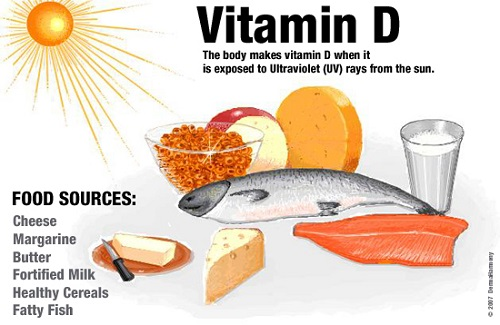5) Diet, and MS

The McDougall Diet
https://www.drmcdougall.com/health/education/free-mcdougall-program/
The MS Diet by Dr Mercola
How to Treat Multiple Sclerosis Without Dangerous Drugs
https://www.youtube.com/watch?v=JwcZsiGztws&t=14s
Many of the recommended strategies for MS are identical to the principles I’ve been teaching on my site for years, but a few stand out as being specifically applicable to the treatment of an autoimmune disease such as MS.
Optimize your vitamin D levels – As with virtually all other autoimmune diseases, optimizing your vitamin D levels is an essential step. Ideally, your level should be somewhere between 70-90 ng/ml, which is done through a simple blood test. I recommend using LabCorp for this if you’re in the U.S.
Ideally you’ll want to raise (and maintain) your vitamin D levels by regularly exposing large amounts of your skin to sunshine, or by using a safe tanning bed.
If for any reason neither is available to you, you can use an oral supplement of vitamin D3. Doses for an oral supplement could be as high as 10,000 IU’s a day depending on your current level, so it’s very important to monitor your levels regularly.
Personally, I believe it’s medical malpractice to treat someone with an autoimmune disease and not address and monitor their vitamin D levels.
Optimize your essential fat intake – Secondly, you need to make sure you’re getting a good supply of essential fats, such as omega-3s.
Part of optimizing your essential fats includes avoiding damaged, processed fats found in most all processed foods. Especially damaging are the omega-6 fats found in soy-, canola-, and corn oil. These are usually highly oxidized and also contain trans fats and cyclic fats that imbed themselves into your cell membranes, distorting the cellular functions.
You’ll also want to increase your intake of healthy omega-3 fats. My favorite is an animal-based source such as krill oil, or fish oil. But plant-based fats high in ALA are very beneficial as well. Good sources include flax seed and chia seeds.
Eliminate sugar – Another crucial element is to eliminate as much sugar as possible from your diet. Cutting out processed foods will go a long way to reduce excess sugar, in addition to eliminating the majority of damaging fats in your diet.
Eat raw food – This is an important principle for optimal health that I normally recommend for everyone. However, I’ve found that for people with severe autoimmune disease, it’s even more important. Some of the most dramatic improvements we’ve seen in patients using nutritional changes have come about as the result of eating their food raw instead of cooked.
Multiple Sclerosis: The Cause by Dr. McDougall

Most professionals are expecting that the answer to MS will be found, someday, by some “high tech,” high profit, research in viral or immunological investigations but not diet.
However, when I have asked some doctors and dietitians, who are supposed experts in the field of multiple sclerosis, to support their contention that diet has nothing to do with the cause or cure of the disease, they have consistently been unable to give me a scientifically supported answer. In my research, I have yet to see a study which says that a sensible diet will not help victims of multiple sclerosis. In fact, the scientific evidence published to date provides evidence supporting the benefit of diet for victims of this debilitating disease. Is the evidence offered so far adequate for you to take action?

World-wide, the incidence of multiple sclerosis crosses all racial barriers and geographical boundaries. Multiple sclerosis is common in Canada, the United States, Northern Europe; it is rare in Japan, elsewhere in Asia, and in Africa. When people migrate from a country of low incidence of multiple sclerosis to a country of high incidence, their chance of getting this disease increases as they learn new ways to live and to eat. Many investigators have looked into the environmental factors that would account for the differences in disease incidence among different populations.
The culprit appears to be the strongest contacts we have with our environment–the foods we eat each day. Does this surprise you? After all, “we are what we eat.” One general observation that can be made is that countries with lots of cases of multiple sclerosis are also wealthy countries. An exception is the wealthy country of Japan. But there is an explanation for this: even though the Japanese have money, stress, pollution, and the smoking habits characteristic of people in other industrialized nations, their traditional rice-based diet is more characteristic of the foods consumed in poorer nations.

A diet filled with rich foods assails us with many different substances that may be related to diseases that trouble us, but the animal fats, especially those from dairy products, have been most closely linked to the development of multiple sclerosis. One important theory proposes that cow’s milk consumed in infancy lays the foundation for injuries to the nervous system that appear later in life. Cow’s milk contains one fifth as much of an essential fat, called linoleic acid, as does human mother’s milk. This essential dietary-derived substance helps to make up some of the chemical components in nervous tissues. Children raised on a linoleic acid-deficient, high-animal fat diet, as are most kids in our modern affluent society, quite possibly starting life with a damaged nervous system, susceptible to insults and injuries in later life. Analysis of brain tissues has shown that persons with multiple sclerosis have a higher content of saturated fats than do people who do not have this disease.

The factors that can precipitate the attacks of multiple sclerosis in mid-life are suspected to be viruses, or allergic reactions, and/or disturbances of the flow of blood to the brain. Most likely, whatever factor may be involved, there is a close tie to the circulatory system, because the areas of injury sustained by the nerve cells surround blood vessels.
One theory holds that the primary injury to a person with multiple sclerosis is caused by a decrease in the supply of blood to tissues in certain parts of the brain. Dietary fats in the amounts consumed by Americans can and do cause a decrease in flow of blood to many kinds of tissues, including those in the brain. Fats from the gut enter the blood stream, coat the red blood cells, and thereby inhibit the normal property of their membranes that keep the cells from sticking together. Therefore, blood cells coated with fats do stick together, forming clumps that slow the flow of blood to vital tissues. In many blood vessels the clumping and sludging become so severe that the flow of blood stops entirely, and the overall oxygen content of the blood falls. Tissues deprived of nutrients and oxygen for even short periods of time will die. Could something as basic as this be a factor in the attacks that destroy nerve cells in victims of multiple sclerosis?
A low fat diet reduces frequency of attacks. During World War II civilian people in Western Europe were under tremendous stress, as their countries were occupied by one enemy or another, yet doctors observedthat patients with multiple sclerosis needed 2 to 2 1/2 times fewer hospitalizations during this war period. At that time all kinds of foods were scarce, and the civil populations could no longer afford to eat their meat-producing animals. Instead, they ate the grains and vegetables that earlier had nourished their cows, chickens, and pigs. The overall result was a significant reduction in the amounts of animal products they ate, and, therefore, in the amounts of animal fats they consumed.

Following publication of these observations about improvement in the well-being of multiple sclerosis patients (as well as of patients suffering from other diseases; such as atherosclerosis), Dr. Roy Swank, former head of the University of Oregon’s Department of Neurology and presently a practicing physician at the Health Science Center of the University of Oregon, began treating his patients with a low-fat diet. Dr. Swank can draw now upon more than thirty-five years of experience in the use of a low fat diet for more than three thousand multiple sclerosis patients. His results are unchallenged by other studies, and unmatched in effectiveness by any other treatment for this crippling disease.
The course of this disease usually leads to a progressive decline in the patient, reducing him to existence in a wheelchair (or worse) likely by the end of 10 years. However, according to his landmark research published in the Archives of Neurology, Dr. Swank reports that if this disease is detected early, and if attacks have been few and the patient adopts a low-fat diet, then he has a 95% chance of remaining in the the same condition, or even for improvement over the next 20 years. Even people who have had multiple sclerosis for a long time, and have already suffered severe neural damage, will slow its progress with a change to the low-fat diet.

The healthiest diet is based on low-fat vegetable foods. In recently published research in the December 1988 issue of the American Journal of Clinical Nutrition, Dr. Swank presented data, from patients studied for more than 34 years, showing the importance of strict dietary practices for multiple sclerosis patients. First, he and his colleagues found that every incremental increase in intake of saturated fats (that is animal fat) is associated with a corresponding increase in frequency of attacks. Second, to arrest the disease the diet must contain as little fat as possible, or approximately 7% fat. Those on a low fat (17 g) diet lived almost 3 times as long and generally improved their level of function. On a high fat diet (42g) the average patient went from active to wheel chair and bed ridden (or dead) over the three and a half decades of study. Thus the threshold of safety can be reached with the diet taught by the McDougall Program. A diet consisting of starches, vegetables and fruits contains only 5 to 10% total fats, and less than half of this amount is represented by the saturated fats. Obviously, this is the ideal diet for patients suffering from multiple sclerosis. And it is a practicable diet, as well as a palatable one.
Dr. Swank has added a small amount of vegetable oil (polyunsaturated) to his diet, hoping that the poly-unsaturated fats may make the diet more palatable, if not more helpful. However, studies that simply added oils high in essential fats, such as linoleic acid, to the diet have shown conflicting results concerning any benefit. Therefore, I believe the low-fat content of his diet (not the added vegetable oil) is the explanation for his successful treatment of people with multiple sclerosis. Dr. Swank himself also inclines toward the view that the lowest level of saturated (animal) fats is the critical issue. Furthermore, other health reasons prevent me from adding vegetable oils to a person’s diet. At the very least, these oils contribute calories that may lead to obesity, and, at worst, they may promote cancer and gallbladder disease.
Related Video
Recommendations
When a doctor recommends a therapy, he or she must weigh the benefits of it with the risks it entails. The dietary change I recommend, as far as I can tell, offers many benefits without any evident risk: it has no adverse consequences. In relatively well people, it promotes weight loss in the obese, and relieves constipation, and at the same time cuts the food bill by about 40%. Actually, these changes are in line with recommendations from national health organizations. The American Cancer Society, the American Heart Association, and the Surgeon General of the United States join in making these recommendations to the nation’s people to eat less fat, meat, and dairy products and more whole grains, vegetables, and fruits.
The results of this sensible dietary treatment have been very gratifying for my patients (and for me), not only because the progress of the multiple sclerosis has been halted in most cases, but also because their health is unquestionably improved. And no one will deny that, these unfortunate people need every bit of help they can get.
https://www.youtube.com/watch?v=Yywl6YBxySc&index=4&list=PL2rqY0xxHmw2WbMMma1-moaDrXCS14_Y_
The top supplements for natural MS treatment

Before we get to supplements, let’s talk diet. MS is actually the subject of the longest clinical trial of a dietary intervention to treat a medical condition. Beginning in 1949, Dr. Roy Swank treated a group of MS patients with a modified low-fat diet. Whole milk, cheese, butter, margarine and all sources of trans-fats were prohibited. The diet was supplemented with one tablespoon of cod liver oil per day, and participants were encouraged to consume fish three times per week.
After 34 years of follow-up—unprecedented in nutritional science—there were dramatic reductions in disability compared to a control group on an indiscriminate diet. Fifteen patients adhered to the diet for 50 years; thirteen remained active and free of limitations, while only two needed assistance to walk.
But recently, a new paradigm has been embraced to combat MS—the Paleo Diet, best exemplified by the Wahls Protocol. Recently, we had the opportunity to interview Dr. Terry Wahls, herself a testament to the diet’s efficacy. Virtually crippled with MS and relegated to a wheelchair after several ineffective rounds of powerful immunosuppressant drugs, Wahls found her way to recovery by means of rigorous adherence to a version of the Paleo Diet that eliminates “modern” foods.
She recently obtained a seven-figure grant to undertake a comparative studietdy of the Swank Diet vs. the Wahls Protocol for MS patients at the University of Iowa. My personal preference is for the McDougall diet which I belive is an improvement on the Swank Diet.
When it comes to supplements, here are the ones with the most scientific mojo:

1) Vitamin D: Studies show that MS cases cluster at extreme northern and southern latitudes. This led to speculation that sunlight conferred protection against autoimmunity. In fact, several studies have now confirmed the promise of high-dose vitamin D in MS. 10,000 IU per day seems safe for most people, but those considering higher doses should do so under the supervision of a health practitioner. Vitamin D is best sourced directly from the sun without sun screen, just be sure not to get even a slight burn!
The Light Side of MS
 Although the risk of multiple sclerosis (MS) is often blamed on genetics, there are significant geographic variations in MS frequency, which suggests strong environmental factors may be at play.One such factor is sunlight exposure and vitamin D. MS is rare in Asia, the tropics and the sub-tropics, and strong correlations exist between MS, location, and duration and intensity of sunlight.
Although the risk of multiple sclerosis (MS) is often blamed on genetics, there are significant geographic variations in MS frequency, which suggests strong environmental factors may be at play.One such factor is sunlight exposure and vitamin D. MS is rare in Asia, the tropics and the sub-tropics, and strong correlations exist between MS, location, and duration and intensity of sunlight.
In short, sunlight exposure has been linked to a reduced risk of MS, and vitamin D deficiency (caused by a lack of sun exposure) has been suggested as a cause of MS.
A review of epidemiological studies found a protective role of vitamin D for MS. Meanwhile, animal studies have found that an injection of vitamin D3 can prevent experimental autoimmune encephalomyelitis (EAE), which is an animal model of MS. Vitamin D deficiency accelerated the onset of EAE in animals.
The researchers concluded that vitamin D supplementation, at levels higher than are currently recommended by the Institute of Medicine, may help to reduce the risk of MS.
Other environmental factors that may also increase the risk of MS include infection with the Epstein-Barr virus and cigarette smoking.
Dr. Mercola's Comments:
It is widely known that your risk of MS increases the farther away you live from the equator.
Quite simply, one of the best things you can do for your health -- getting enough regular exposure to sunshine on your uncovered skin so your body can produce optimal amounts of vitamin D -- can greatly reduce your risks of developing serious autoimmune diseases like MS.
In fact, a lack of sunlight was identified as a risk factor for MS as early as 1922. Vitamin D has been shown to positively affect MS by changing the status of chemicals called cytokines, which modulate your immune system and can either fight or increase inflammation.
One study found that sunlight exposure reduced the death rate from MS by as much as 76 percent!
Within the United States and Canada, you are roughly twice as likely to develop MS if you spent your childhood in northern states than if you did so in more southerly states. The "cutoff" age appears to be 15; your likelihood of developing MS remains higher if you lived as a child in a less sunny climate, even if you move farther south as an adult.
Still, one of the most important things you can do at any time in your life is to make sure your vitamin D levels are where they should be (The OPTIMAL value that you’re looking for is 50-55 ng/ml (115-128 nmol/l).)
Ideally, you should get the vitamin D you need by getting regular sun exposure. If you live somewhere where this is impossible year-round, you can use a safe tanning bed that has the potentially harmful X-rays and electromagnetic fields eliminated.
Alternatively, you can take a high-quality vitamin D3 -- this is the ONLY safe form of vitamin D supplement -- but you should have your levels checked regularly to make sure you don’t overdose.
You can find out all the important details about sunlight and vitamin D in my upcoming book Dark Deception, which is coming out soon.
Tips for Preventing, and Normalizing MS
Prevention is the best option for MS, as this disease is not a simple thing to put into remission. The chance of going into remission with conventional treatments is close to zero, but your chances increase considerably when employing intelligent natural therapies including:
- Getting plenty of sunshine and optimizing your vitamin D levels. If you have MS, I would have your vitamin D level checked every month or two until it is in the optimal range.
- Taking a high-quality omega-3 fat, such as from krill oil, while cutting back on omega-6 fats from vegetable oil. This will help to optimize your omega-3:omega-6 ratio.
- Eliminating sugar and following the nutrition plan, which will help to normalize your insulin levels.
- Removing heavy metal toxins like mercury from your body.
Further, in my experience with MS patients, there is nearly always a precipitating traumatic emotional event that causes your immune system to crash, leading to the disease. Through my experiences, I have found that they are typically related to close family members. Troubled relationships with spouses, parents, siblings, deaths and divorces are very common triggers for MS.
Issues related to this event need to be addressed by using an effective energy psychology tool like the Emotional Freedom Technique (EFT), but only with the help of an experienced practitioner.

2) Omega 3 fatty acids: There’s strong scientific rationale for neuro-protection by EPA and, especially, DHA. The success of the Swank Diet might be due, at least in part, to swapping out “bad” hydrogenated fats for healthy omega 3’s from cod liver oil (rich in D, too) and fish. Yet, surprisingly, studies don’t bear out the efficacy of fish oil supplements for MS. But proponents of Omega 3s argue the research was of too short a duration, may have used too little fish oil, or may have involved patients too far gone in MS progression to see any difference. I continue to be a believer in high-dose fish oil for my MS patients.

3) Probiotics: According to mounting research evidence, a distinct gut-brain connection is at the root of many neurological disorders from autism to Alzheimer’s Disease. A recent study indeed confirms that probiotic administration can ease the symptoms of MS.

4).Curcumin: A derivative of the curry spice turmeric, curcumin is known as a potent anti-inflammatory. A recent study confirmed effectiveness of curcumin in an animal model of MS.

5) Vitamin B3/Nicotinamide Riboside: Another pathway that supports energy production in the brain is via NAD (nicotinamide adenine dinucleotide). Thus vitamin B3—nicotinamide—is essential for mitochondrial function. The authors of a recent review theorize that an even more “body-ready” precursor of NAD, nicotinamide riboside, may be even more helpful than ordinary vitamin B3: “Thus we may expect therapeutic benefits from nicotinamide riboside administration in both MS models.” I recommend Niacel 250 mg twice daily for MS.
Supplements and Other Helpful Strategies
There are a number of supplements that can be helpful as well, including:
Low-dose Naltrexone and alpha lipoic acid – One of the newer ones is low dose Naltrexone (LDN), along with alpha lipoic acid. Naltrexone (generic name) is a pharmacologically active opioid antagonist, conventionally used to treat drug- and alcohol addiction – normally at doses of 50mg to 300mg. As such, it’s been an FDA approved drug for over two decades.
However, researchers have found that at very low dosages (3 to 4.5 mg), naltrexone has immunomodulating properties that may be able to successfully treat cancer malignancies and a wide range of autoimmune diseases like rheumatoid arthritis, multiple sclerosis (MS), Parkinson’s, fibromyalgia, and Crohn’s disease, just to name a few.
As explained on the informative website www.lowdosenaltrexone.org, when you take LDN at bedtime -- which blocks
your opioid receptors for a few hours in the middle of the night -- it is believed to up-regulate vital elements of your immune system by increasing your body’s production of metenkephalin and endorphins (your natural opioids), hence improving immune function.Dr. Bert Berkson is an expert on this regimen. For more information about his findings and successes using this combination, please review this previous article. If you’re a member of my Inner Circle, you will have already received the full interview with Dr. Berkson on this topic.
Mercury detox – Mercury is clearly a neurotoxic poison that should be avoided, so avoiding eating fish and refusing or removing mercury dental amalgams are also important aspects. Many still do not realize that the majority of a “silver” filling is in fact mercury, and despite its obvious risks mercury fillings are still used in the field of dentistry.
We are making strong efforts to have mercury eliminated from dental practices in the U.S. and will hopefully succeed in that mission within the next few years. Until then, however, it’s up to you to choose a dentist that has the good sense not to use it.
Additionally, there are now a few new supplements to help eliminate mercury from your system. One in particular that appears to be very effective, developed by Dr. Boyd Haley, is called Oxidative Stress Reliever, or OSR for short
By applying these principles and others available on this site, we’ve seen phenomenal results, and I'm confident that if you suffer from MS and apply them, you too will notice a dramatic improvement in your condition.


